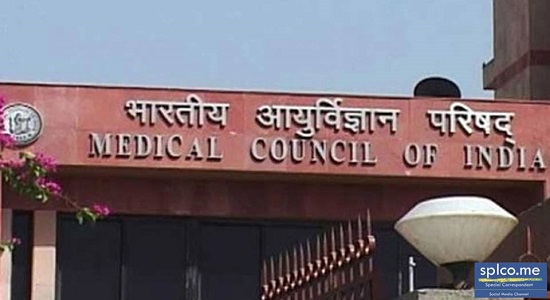The Union Cabinet Friday cleared the National Medical Commission (NMC) Bill, ending the era of Medical Council of India (MCI).

Under the NMC, which includes a Medical Advisory Council where states will be represented, colleges need permission only once for establishment and recognition.
Apart from removing the need for annual renewal of recognition, colleges can, on their own, increase the number of seats subject to the present cap of 250, and start PG courses.
The Medical Assessment and Rating Board constituted by the central government can, however, conduct inspections.
Under the NMC Bill, if a college is found to be in violation of norms, such as those governing teachers, laboratories, patients, etc., it can be fined sums ranging from half of the cumulative fees it charges from students to 10 times that amount.
Over the years, there have been numerous allegations about the functioning of MCI, with its system of annual inspections being accused of being “random” and susceptible to corruption.
In 2010, the MCI’s then chairman Dr Ketan Desai was arrested and the council superceded by a Board of Governors. But that stop-gap arrangement did not last long.
Last year, in a chapter on “corruption in MCI” in its 92nd report, the Parliamentary standing committee for Health and Family Welfare said that “… the President, MCI during evidence before the Committee admitted that corruption was there when there was sanctioning of medical colleges, or increasing or decreasing seats”.
“The Committee has also been informed that the private medical colleges arrange ghost faculty and patients during inspections by MCI and no action is taken for the irregularity. The Committee has also been given to understand that MCI is proactive in taking action on flimsy grounds against Government Medical Colleges which are 100% better,” the report said.
For years, private medical colleges have challenged MCI decisions in court and matters have reached such a state that even the role of judges is under the scanner.
A few years ago, a former vigilance officer of the council quit, alleging harassment and non-cooperation.
“With technology, it is now easier to keep a check. Almost all colleges have biometric attendance and whether teachers are present or not can be checked in Delhi.
But what we are aiming at really is not so much focus on the brick-and-mortar functioning of the college but on the quality of students it produces. Once the licentiate examination starts, performance of students would be an automatic system for rating colleges,” said sources.
A similar system is currently in place for foreign medical graduates. They have to appear for an examination to be able to practice in India, and their performance is a ready reckoner on the quality of foreign medical institutions.
The ex-officio members of the NMC will include the director of AIIMS, New Delhi; Director General of Health Services; and nominees of PGI Chandigarh, JIPMER Puducherry, TMCH Mumbai, and NEIGRIHMS Shillong.
The 64-member medical advisory council will have one member from each state and UT (nominated by the Home Ministry); chairman UGC; director NAAC, etc. There will be four boards under the NMC for UG and PG medical education, ethics, ratings and assessment.
The move is based on recommendations of the Ranjit Roychowdhury Committee and a Parliamentary standing committee both concluded that a regulator elected by the fraternity it would monitor cannot be effective.














